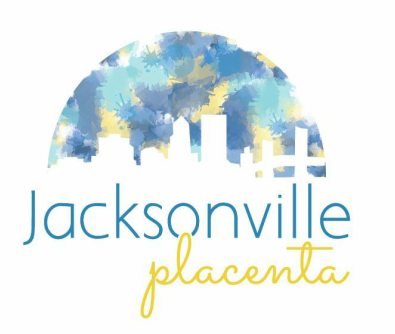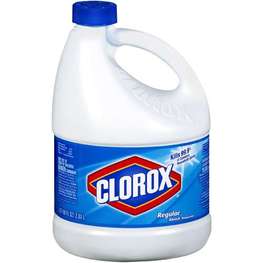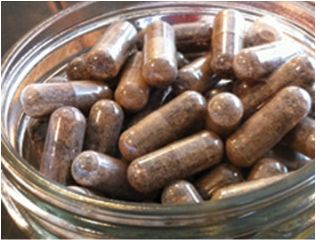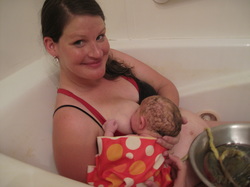| I really hate bleach. I hate the smell. I hate chemicals in my home. I hate chemicals near my little ones. Sometimes, however bleach is very necessary and useful and that is when I use it. Sanitizing placenta encapsulation equipment is one of those circumstances. More and more people are turning toward a more natural way of life. This includes organic foods, cloth napkins, gardening, etc but it has also really changed the way we clean and sanitize our homes. More and more people are using vinegar based household cleaners and essential oils to clean and sanitize their homes and some wonder why cant we use these things for placenta encapsulation? |
Here is the thing. Essential oils and vinegar are great for cleaning. I use a lot of those things to clean the other areas of my home as well. But when it comes to sanitizing placenta encapsulation equipment, you need to use bleach or some other OSHA approved disinfectant. Essential oils may cut it when you're cleaning your toilet or your bathtub but it is not going to cut it with equipment that may be coming into contact with blood borne pathogens. Its a little trickier to kill those.
I ask the STI status of every client I serve but even with that being said, I treat every placenta with universal precautions as if there is a blood borne pathogen present. Bleach is the most accessible, affordable, and effective means of killing blood borne pathogens available. There is NO essential oil that effectively kills HIV or HEP A, B, or C. Vinegar also does not kill these pathogens. Bleach and other hospital grade disinfectants are the only safe options available.
I explain all of this to say make sure you are asking your specialist what their specific sanitation protocol is. If they are using vinegar, essential oils, or other natural substances to disinfect then unfortunately they are not protecting you from exposure to someone elses blood borne pathogens! Know your specialist well so that you can make the safest and most informed choice on your care!
If you are interested in more information on placenta encapsulation or my process or protocol, I can be reached at [email protected] or 904-575-8314. I currently serve Jacksonville, Jacksonville Beach, Orange Park, Middleburg, Green Cove Springs, and Fleming Island.
I ask the STI status of every client I serve but even with that being said, I treat every placenta with universal precautions as if there is a blood borne pathogen present. Bleach is the most accessible, affordable, and effective means of killing blood borne pathogens available. There is NO essential oil that effectively kills HIV or HEP A, B, or C. Vinegar also does not kill these pathogens. Bleach and other hospital grade disinfectants are the only safe options available.
I explain all of this to say make sure you are asking your specialist what their specific sanitation protocol is. If they are using vinegar, essential oils, or other natural substances to disinfect then unfortunately they are not protecting you from exposure to someone elses blood borne pathogens! Know your specialist well so that you can make the safest and most informed choice on your care!
If you are interested in more information on placenta encapsulation or my process or protocol, I can be reached at [email protected] or 904-575-8314. I currently serve Jacksonville, Jacksonville Beach, Orange Park, Middleburg, Green Cove Springs, and Fleming Island.




 RSS Feed
RSS Feed
